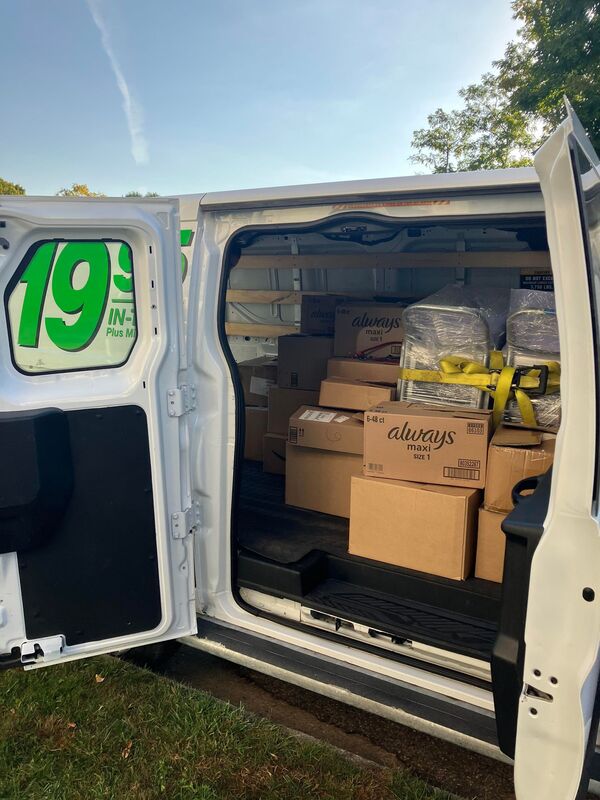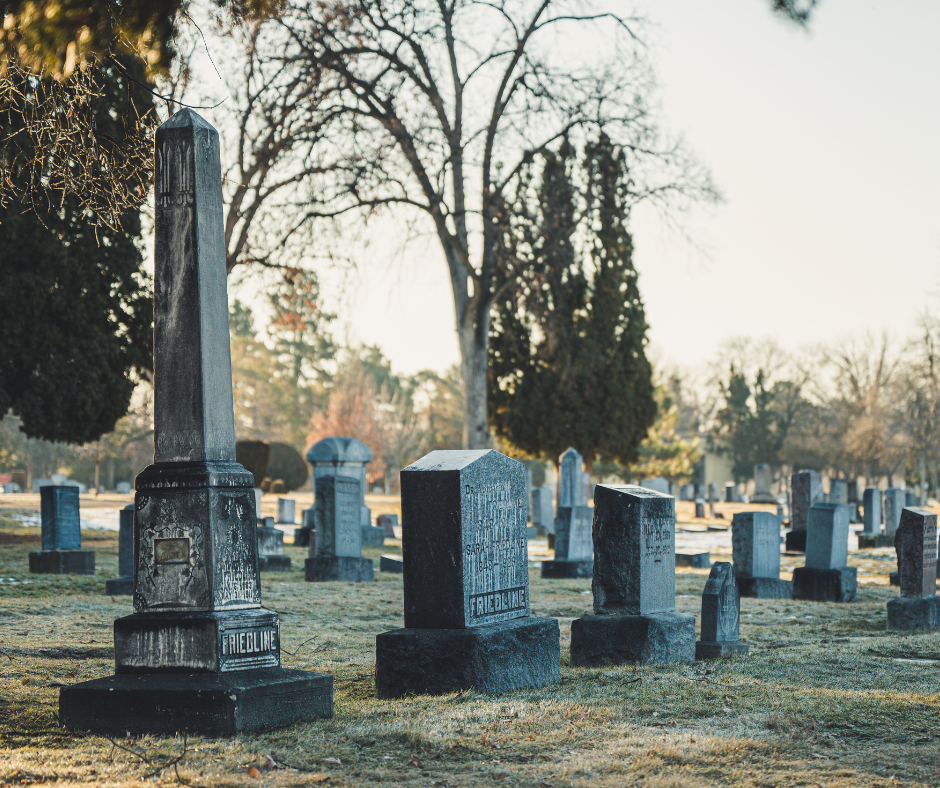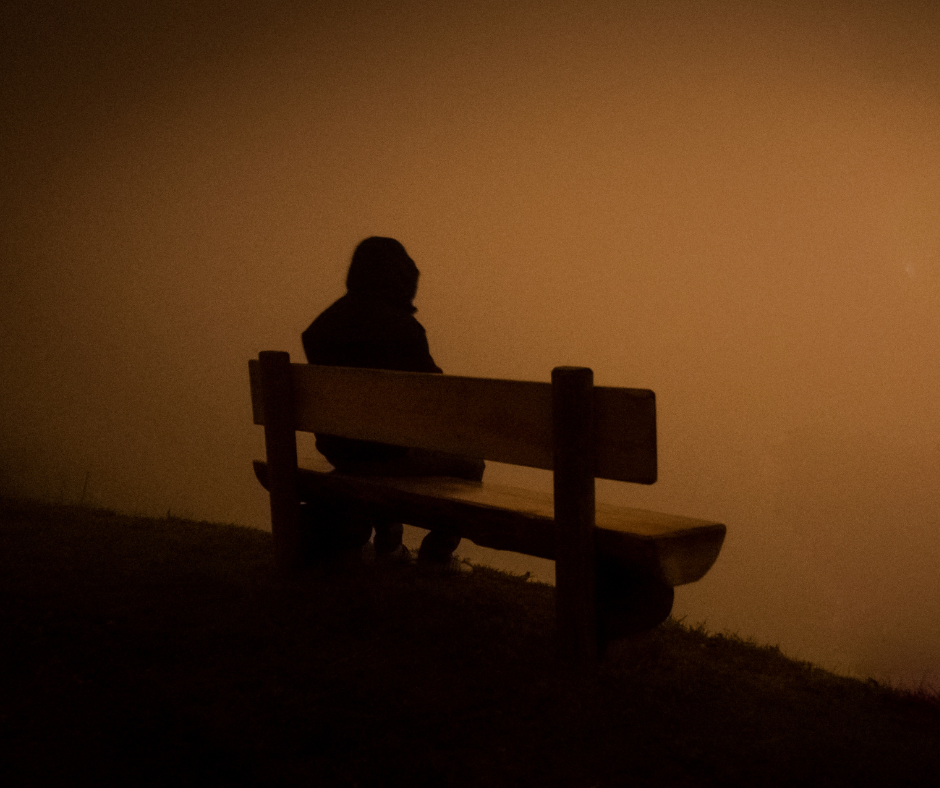|
By Maria Servold
Earlier this month, we gave another 500 small miscarriage care kits to Metro Detroit Share, an organization we have partnered with since 2020. For the last several years, MDS has taken 500 small miscarriage care kits at a time to distribute to women suffering early pregnancy loss all over the state of Michigan. Every time we prepare 500 more kits for MDS founder, Angie Winton, to pick up, we are excited - we’re glad to support women across Michigan in such a concrete way. But, each round of 500 also brings a sense of sadness, because those kits represent 500 more women who have lost babies. Since our founding, we have known that providing material support to women suffering loss is key to helping them through the grief and pain of miscarriage. We know the pain these women are feeling, and while we are glad to help them in whatever small way we can, our efforts do not erase their suffering. One Hillsdale mother, Lauren Smith, said she first thought of reaching out to EPLA when her sister thought she may be miscarrying: “About a year ago, my sister thought she might be experiencing a miscarriage. At the time, it was a real blessing to know how and where to quickly obtain a miscarriage kit for her, thanks to the EPLA's work in Hillsdale County. Fortunately, the spotting subsided, and a healthy, beautiful baby was born a few months later.” Unfortunately, Lauren herself experienced a miscarrage this year, but said she is grateful for EPLA’s tangible resources found in our early loss kits. “Earlier this spring, I found myself in the same situation, spotting, cramping, and anticipating a miscarriage at seven weeks. A dear friend (and founding member of the EPLA) dropped off a miscarriage kit on my doorstep as soon as she learned about our situation. Despite the heartbreak of losing a child, I was comforted knowing that I had everything I needed on hand.” “The kits are prepared by women who have suffered the heartbreak, the disorientation, and the isolation of a miscarriage, and the kits are a tangible reminder that you are not alone in your loss.” While we wish no one had to suffer miscarriage, we’re grateful for the priviledge to provide kits to women like Lauren all over Michigan and throughout the U.S., who are in need of physical and emotional support during the loss of a child. We’re happy to continue to give hundreds of kits to Metro Detroit Share and individuals, but we will always remember that a kit given is a baby lost.
1 Comment
By Nick Carrington
Hope Blooms Editor My parents have lived in the same county since before I was born. When I visit them, I see the relics of my childhood. The McDonald’s where we’d stop for milkshakes after church on Wednesday nights, the marina where I would feed ducks with my grandparents, the local burger place that serves patties so small that you must order three or four to get your fill. These places warm my heart, remind me of how blessed I was growing up. I want my kids to understand that history, the way it shaped me for better and worse. But each time I go home, I also pass a graveyard on a hill. The cemetery rises behind an old country church that couldn’t seat more than 50 people, with a parking lot made for 20. The largest store within a few miles is the Family Dollar, a relatively new addition to an area where the houses look more like emergency shelters than homes. In that graveyard lie the remains of my beloved grandparents and their two sons, one who died in infancy and another from cancer in his 30s. I have so much to tell my children about my grandparents. My grandmother would rush to our house every time we were sick, taking care of us while my mother worked at the local hospital. She made our favorite dishes and covered us with blankets. My grandfather would pick my friends and I up from the golf course and take us to dinner, paying for the food every single time. He’d then drive us home, about half an hour away. I never had the chance to know my uncles well. I have only one memory of the one who died as an adult. He was coughing in bed, the room full but filled with silence. The end was near, and truth be told, he already looked like death. His brother, the one he never truly met, was his twin, taken by a condition that could be addressed today. There are no memories of them to share with my kids. No legacy of kindness and sacrifice. And yet, sometime soon, I will take my kids to that graveyard and stand them in front of those family tombstones. I plan to tell them all about their great grandparents, how they loved me well. How their home felt like my own. But I will also tell them about their great uncles, how precious they were to our family even though they were gone too soon. My kids will hear about the truck my family owned, once my uncles, and how my mother cried the night someone stole it and crashed into a tree because it was all we had left of him. They’ll hear the tales, as well as I can remember them, of how hard my grandparents worked to save their 9 month old and how their love for him never stopped, even as they grieved his death more than 50 years later. My kids will see how much I wanted to know my uncles, how our family feels so hollowed out, so thin without them. That cemetery behind the old, white church reminds me that we dignify those we’ve lost because they are a part of our families, our loved ones, and us. To honor them all will do good to my heart, but it will also help my children understand how to honor their four cousins who died in the womb, the ones they never played with. We remember them all, knowing that while gone, they are still our family, still a part of our story. Emily Carrington, EPLA Executive Director
Ten years ago many women felt like they could not share their miscarriage. The norm was to keep your pregnancy a secret until 13 weeks and then lie about pregnancy loss if it happened. Maria and I candidly tackled this issue in our latest podcast on Hope Blooms. In this episode we see that it is clear that a world that forces women into silence and isolation is not one that respects, honors, and dignifies these mothers - but what are the risks of going too far the other way? Do you have to shout your miscarriage? No. At least we hope not. And that is certainly not the world we envision. We want a world where women are given the proper physical, emotional, and spiritual care after an early pregnancy loss, where the loss of life is honored as a death and where the physical journey is truly protected, not ignored. Some women may find comfort in sharing their story publicly. Many want to write, talk, or outwardly provide service or care for other suffering women. We see this in the work that has gone before us. But silence, meditation, and introspection are also dignified. A woman should feel free to wrestle with her grief without the culture heaping on confusion or lies. Just as we all deal with the death of a loved one, a cancer diagnosis, or any other tragedy in different ways, women will express their miscarriage differently. What is important is that we love her and take care of her needs as informed and connected support people. This October we all have the opportunity to join women and families suffering pregnancy loss, and I hope one day we will see a world where we don’t need an awareness month because women are receiving the love and support they need all year round. If this October you need silence, rest, and introspection - I urge you - please take it. You do not have to shout your miscarriage. |
Archives
December 2023
Categories
All
|




 RSS Feed
RSS Feed